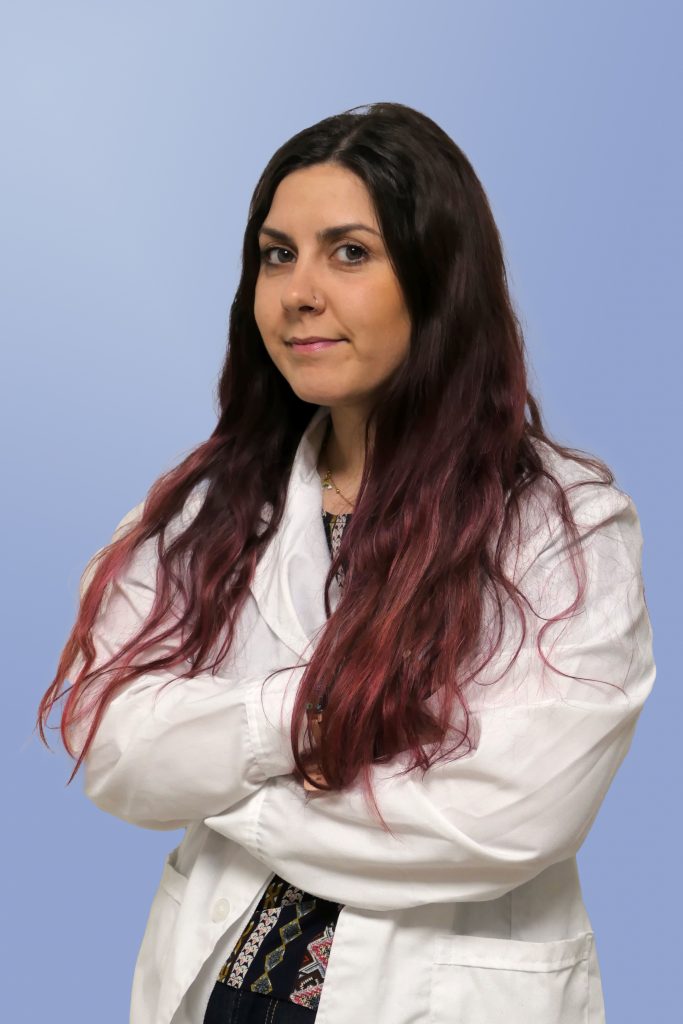
ORCID ID: 0009-0005-0333-2929
Curriculum: Clinical Neuroscience
Tutor: Professor Nadia Bolognini
Supervisor: Dr Antonio Caronni
Workplace: University of Milano Bicocca, Milan, Italy AND IRCCS Istituto Auxologico Italiano, Milan, Italy (Neuropsychology Lab, Neuromotor Rehabilitation Unit)
Abroad period: I spent 4 months abroad (September 2024 – January 2025) in the Clinical Social Neuroscience – CSN – Unit at the University of Wien (Austria) under the supervision of Professor Giorgia Silani.
I obtained a bachelor’s degree in psychology from the University of Urbino in 2019, with a thesis on the neuromorphometrical similarities and differences among schizophrenia, bipolar disorder, borderline personality disorder, and antisocial personality disorder under the supervision of Prof. Manuela Berlingeri.
I then completed my master’s degree in Neuroscience and Neuropsychological Rehabilitation at the University of Padua in 2021 (Final grade: 110 with honors). My master’s thesis focused on the neuropsychological indices of fitness to drive in Parkinson’s disease, supervised by Prof. Giuseppe Sartori. This project was carried out in collaboration with the neuropsychology clinic (BRAIN.LAB) at Gruppo Veneto Diagnostica e Riabilitazione, where I also conducted an internship in clinical neuropsychology. During my internship, I worked with patients with movement disorders, acquired brain injuries, and neurodegenerative diseases as part of a multidisciplinary team of neuropsychologists, physical therapists, speech therapists, and occupational therapists.
From 2021 to 2022, I completed my post-graduate traineeship at the Centro Studi e Ricerche in Neuroscienze Cognitive – CNC – in Cesena (University of Bologna). During this period, I received intensive clinical training in neuropsychological assessment and rehabilitation with patients affected by acquired brain injuries and neurodegenerative disorders.
I got the license to practice as a psychologist (N°11962 Albo A – Ordine degli Psicologi dell’Emilia -Romagna). In November 2022, I started the PhD program in Neuroscience, curricula of Clinical Neuroscience, at the University of Milano-Bicocca under the supervision of Professor Nadia Bolognini.
PhD research project
Advancing in Neuropsychology of Social Cognition and Affective Behavior
Social cognition encompasses a range of cognitive and psychological processes that guide humans in social interactions, facilitating successful relationships with others and within society. It involves essential abilities for processing and interpreting social information and behaving appropriately. In neurological and psychiatric disorders, these abilities can be compromised, significantly impacting an individual’s quality of life. These impairments can manifest as severe neurobehavioral disabilities, such as akinetic mutism or aggression, or as deficits in social skills, including social perception, emotion recognition, empathy, theory of mind, and moral reasoning (Henry et al., 2016).
In Italy, proper tools for evaluating socio-cognitive abilities are currently limited, and normative data are often lacking. This shortfall contributes to the exclusion of social cognition assessment in clinical routines, despite its recognition as one of the six core domains of neurocognitive functioning (DSM-5, APA 2013).
The primary goal of my project is to enhance the landscape of neuropsychological assessment of socio-cognitive abilities by developing new tests suitable for various clinical populations (neurological and psychiatric). Additionally, the project aims to investigate the psychometric properties, provide validation, and establish Italian normative data for existing tests.
Ultimately, the project seeks to facilitate the evaluation of these aspects in routine clinical practice and contribute empirical evidence to improve the process of differential diagnosis across diseases.
Additional details
To get further info please visit the Research gate:profile.